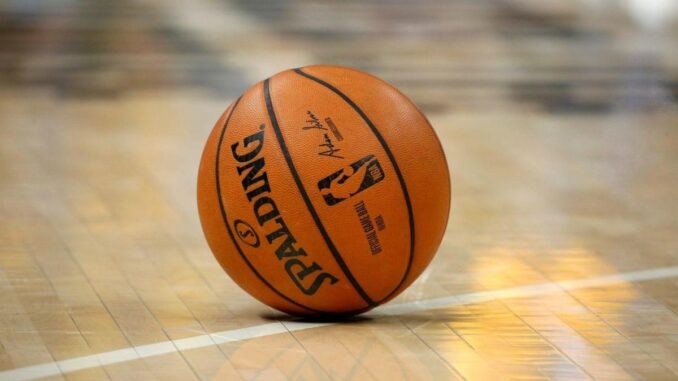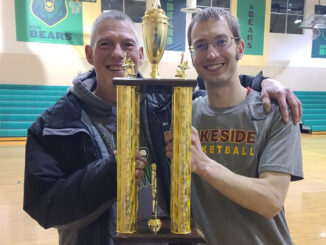
I was looking for an escape from travel basketball and agreed to coach a 7th-8th grade girls team in the local City recreational program. It was a great break and one that came with some unexpected and uncommon memories.
The team I was given had a group of girls who were fun and got along well. One was a pretty good point guard and another a pretty good off-guard. The rest were in it for fun.
We practiced outdoors at a middle school and, as it turned out, an opponent from our division practiced on a nearby court. I overheard their coach on a few occasions and was astounded by his ego and found myself thinking of him as Mr. Arrogance.
It wasn’t my first time in a recreational program, and I knew that game plans had to be simple. At the same time, offenses needed to have options. I had devised just such an offense years before, and it fits perfectly for our group. So did a diamond-and-one defense.
The players responded well, and after a couple of losses, we began winning and eventually finished third in our league of twelve teams.
It was our third game that was the toughest. We lost by 28 to that same team that practiced next to us.
After that game, I was approached by a local high school boys basketball coach who had a daughter in our division. He said he knew I was on the Board, and he asked how it was possible that the team we had just lost to had the same players for three years and had never lost a game.
“I thought teams were assembled by computer,” he scolded, “so explain to me how that guy gets the same players every year!”
Although I rated players during signups, I had nothing to do with the computer or assembling teams, so I had no answer for him. I told him I would take his concern to the Board, but he snarled, “No, I’m going to do that myself!”
That got me thinking. If Mr. Arrogance was somehow working the system in forming his team, maybe he was also the type to cheat during games. Specifically, I wondered if he was benching his three stars for one entire quarter as required by the rules. (We played five “quarters”). No player was permitted to start or play in all five quarters unless there was a roster shortage.
So, was his 28-point win over us legit, or had he played all three of his dominant players the entire time?
The following month when our second game against his team came, I watched the scorekeeper who marked which players started each quarter and, sure enough, Mr. A. started all of his stars all four quarters and was about to start them in the fifth when I brought the matter to the supervisor’s attention.
The supervisor agreed and told Mr. Arrogance his three stars had to sit out the entire quarter. Mr. A. fumed and then turned to the fans and yelled that the City had come up with a new rule that said his best players couldn’t play.
With his stars on the bench, we closed ground fast.
Although we lost by nine, I smiled all the way home.
His antics grew worse.
When playoffs arrived, I was on my way into the gym of our semifinal game when a woman came storming out of the building. Her face was red, and her fists were clenched, and the veins in her neck looked like they would pop.
She was muttering and fuming, and when she saw me, she rushed up and said, “You’re a Board member! You have to do something about that coach. He’s up by 50 points, and he’s got his girls shooting threes, and they’re all laughing and acting up while our girls suffer. If you don’t do something about him, I WILL!”
Indeed, I planned to do something about it, but the Board wasn’t scheduled to meet for two more weeks. What I didn’t know on that day was that the solution was already in process, and it wasn’t about to wait for a board meeting.
After the fuming lady left, I entered the building for our semifinal game which was more challenging than I expected. However, we won, and that gave me what I wanted most: a third shot at Mr. A., this time in the championship game.
The following Friday night, our team arrived early for the title game. We did a casual shoot around while I watched Mr. Arrogance and his team. I liked what I saw because Mr. A. was yelling, commanding, and trying to seem like a big-time, hard-nosed coach.
I called my girls out of the gym and into an adjacent foyer, where I told them, “You have nothing to lose. No one has beaten this team for three years, so stay loose and have fun. None of you has ever played in a championship game before, so focus on the experience because that’s where your memories are.”
Then, I leaned in and said, “But . . .”
I stalled and scanned their eyes before finishing my sentence. “. . . we are going to win!”
They laughed until I told them that I knew the girls on the other team because most had played in my summer league. “He’s got them wired so tight they aren’t even moving right. But look at you. You’re all loose and smiling and relaxed. THAT is our key! Play hard but stay loose and watch what happens!”
I didn’t know if we could win, but when we returned to the gym, the difference in the demeanors of the teams during warm-ups was so apparent that I felt we had a chance.
Honestly, Mr. A. did an excellent job of scouting us. He had a clever defensive scheme that took away a lot of our usual offense, but his downfall was that his quest to appear like a big-time coach distracted him from actually coaching or making adjustments.
As we moved through our offensive options, his defense stayed the same. What began with his team-leading by eight in the first half turned into us leading by four through most of the second.
The more the clock ticked down, the more his players tightened and panicked, and the more he yelled. His leading player tightened the most. She was also a bit of a hothead. And, she had four fouls.
So, I called on one of my players, who was a head shorter but also a master of rubbing people the wrong way when she wanted to.
Perfect!
I matched her up with their hot-headed star and watched friction do the rest. Less than three minutes later, their star slammed the ball on the floor and cussed. The official whistled her for a technical foul, which led to her stomping off the court, never returning.
We were ahead by one with about 15 seconds to go when my power forward was fouled and went to the line for a one-and-one. Samantha was not a great shooter, but she hit two free throws in a row for the first time all season, and we were up by three.
I called a time out and told my players to stay outside of the defensive three-point line. “Open a path to the basket. Don’t touch them! Let them have the two-point layup. We’ll win by one.”
Again, Mr. Arrogance was too full of himself to know the score –- literally. He saw the open path, and he took the bait. “Drive!” he commanded his point guard. “Drive!” he screamed.
So, drive she did.
And, score she did.
And, that’s when Mr. A’s face froze.
He suddenly realized that he had just won a two-point battle and forfeited a one-point war.
After championship games, the City permitted coaches to use a microphone to say something about the game and to introduce players.
He said that his team lost because his kids played their worst game ever, and we played our best game ever. He raved about his three-star players but only casually mentioned the others.
His daughter was one of “the others.”
It was the last game Mr. A. coached in the program because Board members had heard of the problems and were in attendance.
After some celebration, I began walking across the court to talk to our parents. As I arrived at the far sideline, I noticed that Mr. A’s daughter had walked across the court to speak to me. Her head was down. Her face was blushed with tears. She looked up to me and apologized to her father, and told me we deserved to win. Then she said, “I don’t want to play anymore.”
My heart broke. I hugged her.
I told her about my summer league, which had hand-picked coaches and emphasized equal teams and fun, but she walked away shaking her head.
There was one other crucial memory from that season.
Her name was Olivia, and she was a pretty girl but one I would politely term “a project.” She showed up for practices wearing miniskirts, purple hair, hoop earrings, snakebite lip rings, and sneers. Early in the season, she didn’t show up often, but as things progressed, she came to most practices and even began dressing to participate.
At our season-ending pizza party, she spoke before our group and said that she never was into playing sports. She only joined sports programs because she enjoyed tormenting coaches, and she always quit once she succeeded. But, since I was the first coach, she hadn’t been able to rile; she had stayed with our team and enjoyed being part of it.
Several months later, I learned that her attitude towards teachers had improved, and her grades had gone from near-failing to near-honor roll.
Her mother told me, “I feel like I have my daughter back. She doesn’t dress like she used to or sneak around with boys. She’s turned a corner somehow, and I think being part of that team and feeling like she fit, especially with the other girls, had a lot to do with it.”
I suppose that winning any championship should be enough fodder for the greatest of memories, but for that team, there was so much more for all than trophies.
I don’t want to ruin the nobility of it all with an unnecessary self-confession, but temptation has gotten the better of me. I must admit that among my greatest satisfactions is knowing that Mr. A’s last memory in youth basketball is not one of blowing out opponents for three straight years but rather a one-point loss brought on by his ego.
If that is wrong, then I apologize.
Nonetheless, I smirk.




